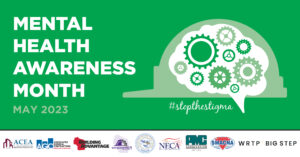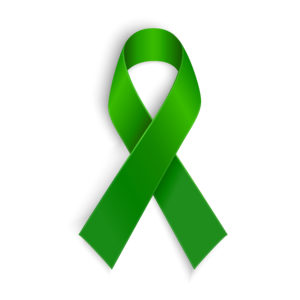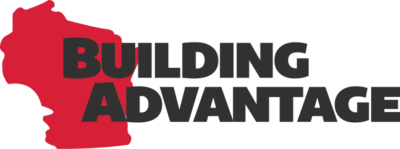Mental Health Awareness & Support in the Construction Industry
 The construction industry is often referred to as a career path for “tough” people. However, the demands of the job can put a physical and mental strain on the toughest among us. With one in five construction workers reporting struggles with mental health issues, it’s important to recognize the warning signs, not only to maintain wellness, but also to avoid a problem becoming a crisis. If you or someone you know is struggling, have the courage to take action and help keep us all safe. Download and share our Mental Health Awareness Flier, which can be used as a helpful resource on your job site.
The construction industry is often referred to as a career path for “tough” people. However, the demands of the job can put a physical and mental strain on the toughest among us. With one in five construction workers reporting struggles with mental health issues, it’s important to recognize the warning signs, not only to maintain wellness, but also to avoid a problem becoming a crisis. If you or someone you know is struggling, have the courage to take action and help keep us all safe. Download and share our Mental Health Awareness Flier, which can be used as a helpful resource on your job site.
Mental & Physical Wellness
Being aware of your mental and physical wellness is essential to your overall wellbeing. Staying on top of it isn’t always easy, but keeping an eye on the warning signs can make a huge difference. Visit the National Institute of Health’s website to learn more about ways to manage your mental and physical wellbeing.
Potential Ways to Improve Your Mental Wellness:
- Take time for yourself
- Reduce stress
- Get quality sleep
- Properly cope with loss
- Strengthen your social connections
- Be mindful/present
Alcohol & Substance Abuse
Almost 15% of all construction workers in the United States have an alcohol or substance abuse disorder, about 7% higher than other industries. Construction can be highly dangerous and a tradesperson under the influence could make unsafe decisions affecting not only themselves, but also their co-workers and job site. If you’re struggling with alcohol or substance abuse issues, call Wisconsin’s Addiction Recovery Helpline at 2-1-1 or 833-944-4673 or SAMHSA’s (Substance Abuse & Mental Health Services Administration) National Helpline at 1-800-662-4357.
Potential Warning Signs of Alcohol Abuse:
- Repeated conflicts with family members, friends or co-workers
- Not being able to recall events while drinking, also called blackouts
- Recurring episodes of mood swings, depression or feeling irritable
- Using alcohol on a regular basis to relax, improve mood, sleep, deal with problems or feel “normal”
- Having troublesome symptoms like headache, anxiety, sleeplessness or an upset stomach when not drinking
- Red-faced and ruddy complexion, broken capillaries on the face
- Trembling hands
- Drinking alone or drinking in secret
Potential Warning Signs of Substance Abuse: 
- Work or home responsibilities are being neglected
- Lack of motivation or follow-through
- Relationships conflicts, such as fights with loved ones and bosses, loss of friends
- Blood-shot eyes
- Sudden weight loss
- Change in complexion
If you’re not sure who to reach out to, or how to help someone in need, contact a supervisor, your Union Employee Assistance Program, or call the National Helpline (1-800-662-4357).
Suicide Prevention
According to the CDC, the construction industry has the highest rate of suicide at 52.1 per 100,000 workers. If you’re struggling with mental health issues, call the Suicide Prevention Lifeline: 1-800-273-8255.
Potential Warning Signs of Suicide:
- Talking about self-harm, self-destructive behavior
- Self-criticism or self-hatred
- Withdrawing from others
- Expressing no hope for the future
- Decreased productivity
- Talking about being a burden
- Extreme mood swings
- Increased tardiness
- Absenteeism
- Giving away tools or other personal items that hold meaning or value
COVID-19 has amplified stressors in some people’s lives. If you’re concerned about someone you know, speak up! If you’re not sure who to reach out to, or how to help someone in need, contact a supervisor, your Union Employee Assistance Program, or call the Suicide Prevention Lifeline (1-800-273-8255).

